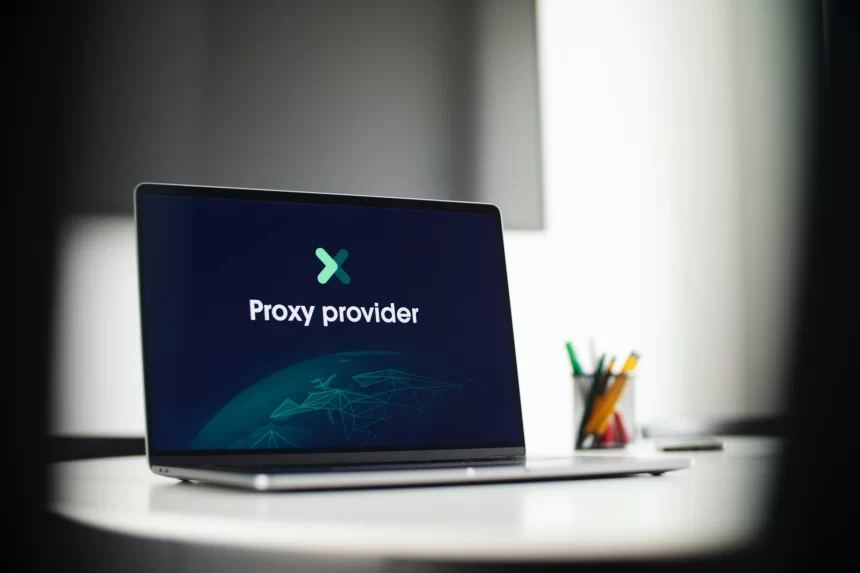There are various types of proxies with distinct characteristics that make them suitable for particular uses. The most common form of proxies is data center proxies because they provide online privacy for both private use and business needs. However, the overall output varies depending on the business that supplies the proxy IPs. Therefore, before receiving them, you need to know what you are seeking.
So, what are data center proxies?
To administer and run proxy IPs, companies that sell proxies have assigned servers. Data center proxies are a type of proxies whose data center servers manage their IP addresses. Due to their speed, they are familiar, enabling many users to perform their tasks before being detected by websites. You can, therefore, use them on less stable websites for web crawling or data mining.
For websites with more robust security features, however, the pace is a disadvantage. Once too much traffic from a particular IP address is detected by systems over a short span of time, they flag it for bot-like behavior. This has prompted the blocking of several data center proxies. But as they are cheap compared to residential proxies, you can buy in bulk and move from one IP to another whenever any are blocked.
For websites with better security features, however, the pace is a drawback. Once systems detect too much traffic from a particular IP address over a short period, they flag it for bot-like behavior. This has prompted the blocking of several data center proxies. They are cheap compared to residential proxies. Whenever any are blocked, you can buy in bulk and move from one IP to another.
However, data center proxies have some disadvantages in that some websites can easily spot and block their fast traffic. And they are not very pleasant at providing cybersecurity.
Residential Proxy vs. Data center
Residential proxies do not get a data center with their IP addresses. Instead, their IP addresses are provided by providers of internet services. Using plug-ins, ISP customers allow proxy sellers to use their IP addresses. As you navigate a residential proxy, your computer appears to be browsing from the ISP customer’s residence.
Compared to data center proxies, residential proxies are very costly. They are also slower for accessing or mining data from well-secured websites but more reliable. Although maintaining the stability and security of residential proxies, static residential proxies are often almost as fast as data center proxies.
Before deciding whether to use the residential proxy or the datacenter proxy, one needs to determine the website they want to access first. Sometimes, with any proxy form, you will find that you can crawl the web, mine data, and change your location.
What are the types of Data Center Proxies?
Data center proxies are mainly classified based on the protocol used.
- Hypertext Transfer Protocol (HTTP) Proxies
You may have found many of the URLs that have an HTTP section as you browse the net. This is because, via the HTTP protocol, most internet surfing takes place. The browsing experience typically includes entering or clicking on a URL, which goes to the server hosting the site as a submission. Hopefully, the server will give you a response in the form of information from the website upon receiving your request. This arrangement is referred to as a client server-model where you send a request to a server and respond from the server. The proxy server serves as an intermediary between your browser and the server while using an HTTP proxy.
- Secure Socket Proxy (SOCKS)
The SOCKS protocol works by transmitting network packets between the server and your browser via a proxy service. Although HTTP proxies are in use to retrieve site information, for other general purposes, SOCKS proxies are useful. Compared to HTTP proxies, they are known to be a lower level of proxy.
When to use Data Center Proxies
As with other proxy types, for specific purposes, data center proxies are better suited than others. Data center proxies will typically perform tasks that require high speed. Also, you can use them for:
- Data mining in smaller websites lacking adequate security systems
- Web crawling
- Purchasing products that you wish to purchase and resell at wholesale. Make sure you have a big pool of proxies and quick bots to execute this correctly.
- Change of location to access sites with geographical constraints. This could be to get discounted rates, perform regional market analysis, or access services that are not currently available.
Conclusion
Data center proxies will perform virtually all the functions for which proxies are intended. They will give you adequate privacy to allow you to search anonymously for information and access websites. Their speed makes them popular among users of the private internet. However, for business usage, where a high degree of privacy is needed, you should not use them. As always, to understand the type of functionality required for your mission, conduct thorough research.










